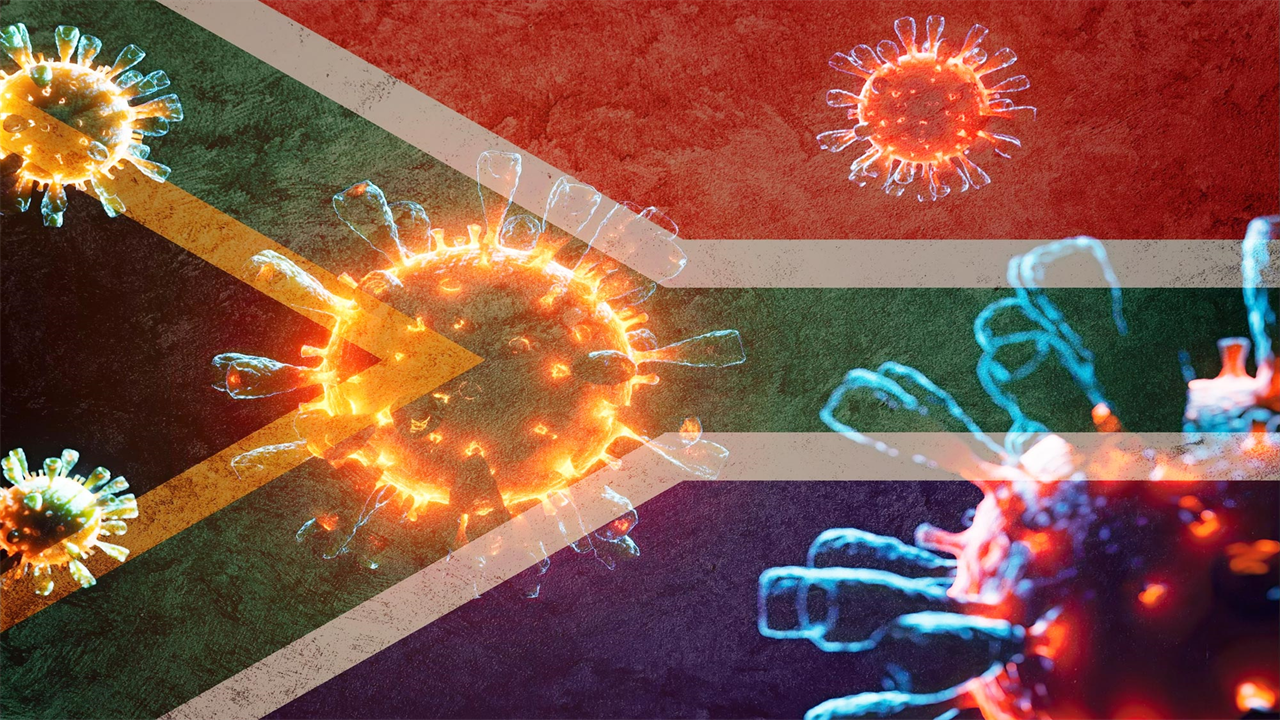There’s No Need To Panic About the New COVID C.1.2 Variant Found in South Africa
0 View
Share this Video
- Publish Date:
- 8 September, 2021
- Category:
- Covid
- Video License
- Standard License
- Imported From:
- Youtube
Tags

By Ian M. Mackay, University of Queensland September 8, 2021
Scientists in South Africa have discovered a new viral variant of SARS-CoV-2, the virus that causes COVID-19.
It is not a single virus, but a cluster of genetically similar viruses known as C.1.2.
The researchers found in a pre-print study released last week but yet to be peer reviewed that this cluster picked up many mutations in a short period of time.
This is indeed what viruses do. They are constantly evolving and mutating because of selective pressures, but also because of chance, luck and chance.
C.1.2 has some related individual mutations. But we don’t really know how they will work together as a package. And it’s too early to say how these variants will affect people compared to other variants.
There is no need to panic. It’s not spreading widely, and it’s not on Australia’s doorstep. The tools we have work against SARS-CoV-2, regardless of the variant.
Will it be more contagious or more serious?
C.1.2 differs from but in a genetic branch close to the Lambda variant, which is common in Peru.
It has some concerning individual mutations. But we don’t know how these mutations will work as a whole, and we can’t predict how bad a variant will be based on mutations alone.
We need to see how a particular variant works in humans to give us an idea of whether it’s more transmissible, causes more serious disease, or escapes the immunity we get from vaccines more than other variants.
At this stage, we don’t know enough about how C.1.2 behaves in humans because it hasn’t spread enough yet. It represents less than 5% of new cases in South Africa and has only been found in about 100 COVID cases worldwide since May.
It is not yet listed by the World Health Organization as an interesting or worrisome variant.
Will it overtake other variants?
It’s still early, so it’s impossible to predict what will happen to C.1.2.
It can expand and catch up with other variants, or it can hiss and disappear.
Again, just because this virus has a ton of mutations doesn’t necessarily mean the mutations will work together to outperform other variants.
Delta is the kingpin variant at the moment, so we’ll have to keep an eye on C.1.2 to see if it starts to push Delta.
So it’s important to keep watching it in case it starts broadcasting widely. A group in Australia, the Communicable Diseases Genomics Network, is closely following these developments.
There is no need to panic
There is no cause for concern at this point.
Australia still has its border restrictions, so the chances of this rare virus entering and spreading the country are very slim.
There is no evidence that our vaccines do not work against it. Our vaccines have so far provided protection against serious illness and death against all other SARS-CoV-2 variants, and there is a good chance that they will continue to do so against C.1.2 variants.
It won’t be long before we have a better idea of how C.1.2 behaves. There are a lot of eyes on it and we have to be patient as the data comes in.
Sensationalism and panic in the meantime are not going to solve anything.
New variants and other news during the pandemic are often seized upon and reinforced by certain people and media. There is a real risk of this causing fear when it is not necessary, and inducing fear is a form of harm.
It’s a tough time for the public because it’s hard to know who to listen to and trust.
I’d say it’s best to listen to the experts, especially organizations whose job it is to identify and communicate risks about these things, such as WHO and your local jurisdiction’s health department.
Don’t magnify or pay attention to obvious alarmism and extreme negativity, and make sure you get your information from reliable media sources.
C.1.2 was first discovered in South Africa and has related mutations. But we should not panic.
Vaccination remains our best only tool
The chance of new variants arising increases as the virus spreads.
Vaccinating as many people as possible as soon as possible is essential to reduce the risk of developing new variants.
That is not to say that the risk is reduced to zero and that there are no more variants. Mutations happen by chance, and happen in a single person. One way that mutations can occur is in people whose immune systems are compromised — they get an incomplete immune response, and the virus adapts, escapes and is released with more mutations.
Nothing is perfect in biology. People’s immune systems respond in different ways, and much is based on individuals’ immune histories – how competent their immune systems are and whether they have a chronic disease.
We will also not have every person fully vaccinated, and vaccines are not 100% perfect, so there will still be some spread of the virus.
But vaccination reduces the risk a lot. We also know what else is working to contain this virus, including ventilation, filtering air, masks and social distancing measures.
Written by Ian M. Mackay, Adjunct Associate Professor, Faculty of Medicine, University of Queensland.
This article was first published in The Conversation.










